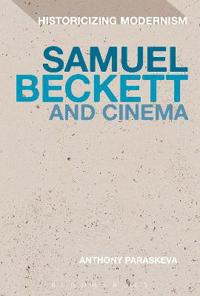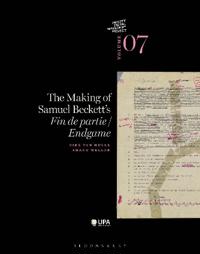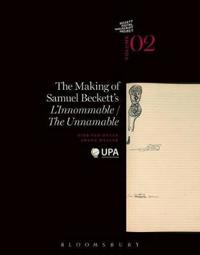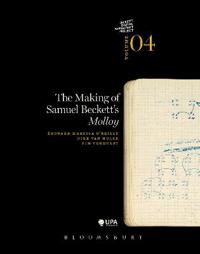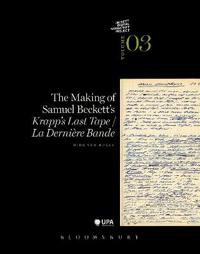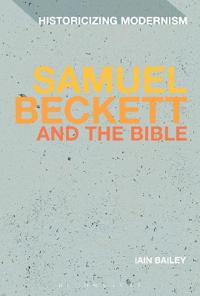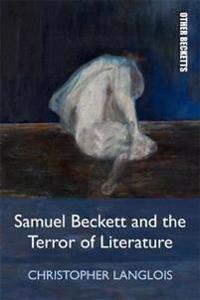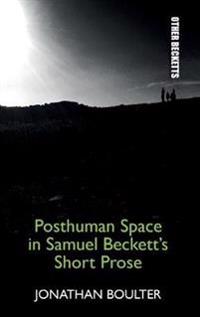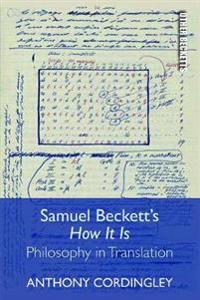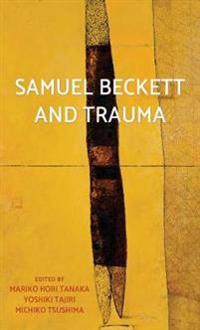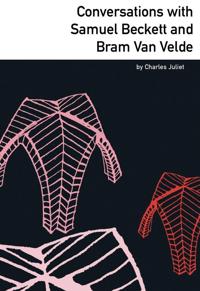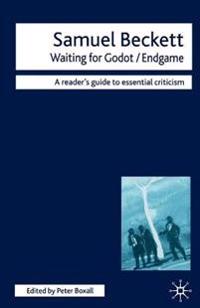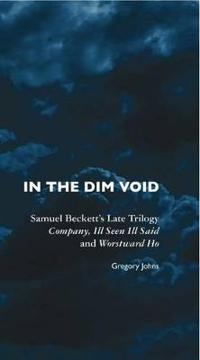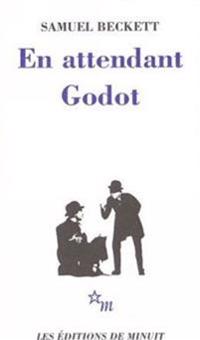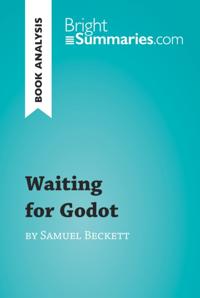Samuel Beckett and Cinema
ISBN: 9781472524980 - UTGIVEN: 2017-02In 1936, Samuel Beckett wrote a letter to the Soviet film director Sergei Eisenstein expressing a desire to work in the lost tradition of silent film. The production of Beckett's Film in 1964, on the cusp of his work as a director for stage and screen, coincides with a widespread revival of silent f[...]
Samuel Beckett's More Pricks Than Kicks: In a Strait of Two Wills (Pocket)
avJohn Pilling
ISBN: 9781472525727 - UTGIVEN: 2014-01-16The Making of Samuel Beckett's Fin De Partie / Endgame
ISBN: 9781472527486 - UTGIVEN: 2018-03Originally written in French and first performed at the Royal Court Theatre in 1957, Samuel Beckett's Endgame is widely regarded as one of his most important works. The Making of Samuel Beckett's 'Endgame'/'Fin de partie' is a comprehensive reference guide to the history of the text. The book includ[...]
The Making of Samuel Beckett's Ll'innommable / The Unnamable
ISBN: 9781472529510 - UTGIVEN: 2014-11Originally published in French as L'Innommable in 1953 and translated into English by the author himself, The Unnamable is the third and final novel of Samuel Beckett's Trilogy. The Making of Samuel Beckett's L'Innommable/The Unnamable is a comprehensive reference guide to the history of the text. T[...]
The Making of Samuel Beckett's Molloy
ISBN: 9781472532565 - UTGIVEN: 2017-10Originally published in French in 1951 and translated into English by the author himself four years later, Molloy is the first novel of Samuel Beckett's Trilogy, continued in Malone Dies and The Unnamable. The Making of Samuel Beckett's 'Molloy' is a comprehensive reference guide to the history of [...]
The Making of Samuel Beckett's 'Krapp's Last Tape'/'La derniere bande' (häftad)
ISBN: 9781472534231 - UTGIVEN: 2016-05First performed at the Royal Court Theatre in 1958, Krapp's Last Tape has since become widely celebrated as one of Samuel Beckett's most important and powerful plays. The Making of Samuel Beckett's 'La derniere bande'/'Krapp's Last Tape' is a comprehensive reference guide to the history of the text[...]
Samuel Beckett and The Bible (häftad)
ISBN: 9781474250252 - UTGIVEN: 2015-07From Waiting for Godot to such later novels as Ill Seen, Ill Said, the work of Samuel Beckett is filled with Biblical references. Samuel Beckett and the Bible re-appraises the relationships between Beckett's work and the Bible, exploring both as objects of history, matter and memory. Iain Bailey ran[...]
Samuel Beckett and the Terror of Literature
ISBN: 9781474419000 - UTGIVEN: 2017-08Samuel Beckett and the Terror of Literature addresses the relevance of terror to understanding the violence, the suffering, and the pain experienced by the narrative voices of Beckett s major post-1945 works.[...]
Posthuman Space in Samuel Beckett's Short Prose
ISBN: 9781474430258 - UTGIVEN: 2019-02Jonathan Boulter offers the reader a way of understanding Beckett's presentation of the human, more precisely, posthuman, subject in his short prose. These texts are notoriously difficult yet utterly compelling. This compelling difficulty arises from Beckett's radical dismantling of the idea of the [...]
Samuel Beckett's How it is
ISBN: 9781474440608 - UTGIVEN: 2018-10This book maps out the novel's complex network of intertexts, sources and echoes, interprets its highly experimental writing and explains the work's great significance for twentieth-century literature. It offers a clear pathway into this remarkable bilingual novel, identifying Beckett's use of previ[...]
Samuel Beckett and the Terror of Literature (häftad)
ISBN: 9781474444378 - UTGIVEN: 2019-02Provides a sustained comparative reading of the relation between Beckett and Blanchot through its novel conception of the language and phenomenon of terrorSamuel Beckett and the Terror of Literature addresses the relevance of terror to understanding the violence, the suffering, and the pain experien[...]
Samuel Beckett and Trauma
ISBN: 9781526121349 - UTGIVEN: 2018-09Samuel Beckett and trauma is the first book that specifically addresses the question of trauma in Beckett, taking into account the recent rise of trauma studies in literature. Beckett is an author whose works are strongly related to the psychological and historical trauma of our age. His works not o[...]
Conversations With Samuel Beckett and Bram Van Velde (Pocket)
avCharles Juliet, Tracy Cooke, Aude Jeanson
ISBN: 9781564785312 - UTGIVEN: 200912When Samuel Beckett and the Dutch painter Bram Van Velde met in Paris in the 1930s, both were living in abject poverty, and neither could have anticipated that on the other side of World War II and the brutal occupation of France by the Nazis they would each go on to be luminaries in their respectiv[...]
Samuel Beckett and the Bible (Inbunden)
ISBN: 9781780936888 - UTGIVEN: 2014-01From Waiting for Godot to such later novels as Ill Seen, Ill Said, the work of Samuel Beckett is filled with Biblical references. Samuel Beckett and the Bible re-appraises the relationships between Beckett's work and the Bible, exploring both as objects of history, matter and memory. Iain Bailey ran[...]
Samuel Beckett - Waiting for Godot/Endgame (häftad)
ISBN: 9781840460827 - UTGIVEN: 2000-04Since the first performances of Waiting for Godot in the early 1950s, Samuel Beckett has become one of the most prominent authors of the twentieth century, widely regarded as the last of the great modernists. Waiting for Godot and Endgame are two of his most famous plays, and are taken by many to b[...]
Samuel Beckett (Inbunden)
avPascale Casanova
ISBN: 9781844671120 - UTGIVEN: 2007-01In this brilliant new exploration of Samuel Beckett's work, Pascale Casanova argues that Beckett's reputation currently rests on a total misreading of his oeuvre, which misses entirely the literary revolution he instigated. Reintroducing the historical into the heart of this body of work, Casanova p[...]
In the Dim Void: Samuel Beckett's Late Trilogy: Company, Ill Seen Ill Said and Worstward Ho (Inbunden)
avGregory Johns
ISBN: 9781861712608 - UTGIVEN: 201003Samuel Beckett
ISBN: 9781861895172 - UTGIVEN: 2010-04The life of Samuel Beckett (1906-1989) has been the subject of exhaustive scholarship, yet by contrast Beckett himself was a spare, minimalist writer who deeply distrusted the techniques of biography. In this new, concise, critical account of Beckett's life and work, Andrew Gibson seeks to remain fa[...]
Samuel Beckett Is Closed
ISBN: 9781944869595 - UTGIVEN: 2018-01A powerful, genre-defying meditation, with Beckett at its origin, that touches on mysteries as varied as literary celebrity, baseball, and why we feel the need to be cruel to one another Following the schema of Samuel Beckett's unpublished "Long Observation of the Ray," of which only six manuscript [...]
Waiting for Godot by Samuel Beckett (Reading Guide)
ISBN: 9782806270450 - UTGIVEN: 2015-12In this clear and detailed reading guide, we've done all the hard work for you!Waiting for Godot is one of Samuel Beckett's most famous plays. It shows how Vladimir and Estragon wait for a mysterious character called Godot. Nothing happens aside from the dialogue between the two protagonists, yet th[...]
Samuel Beckett's Critical Aesthetics
ISBN: 9783319753980 - UTGIVEN: 2018-05This book considers how Samuel Beckett's critical essays, dialogues and reflections drew together longstanding philosophical discourses about the nature of representation, and fostered crucial, yet overlooked, connections between these discourses and his fiction and poetry. It also pays attention to[...]

